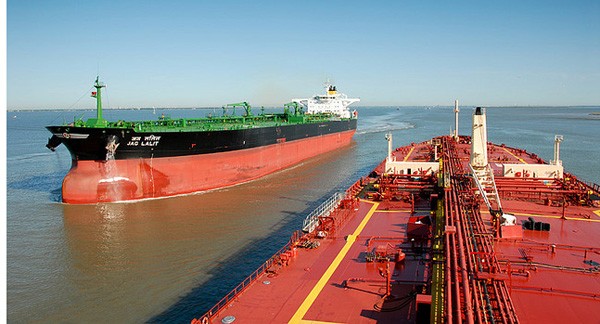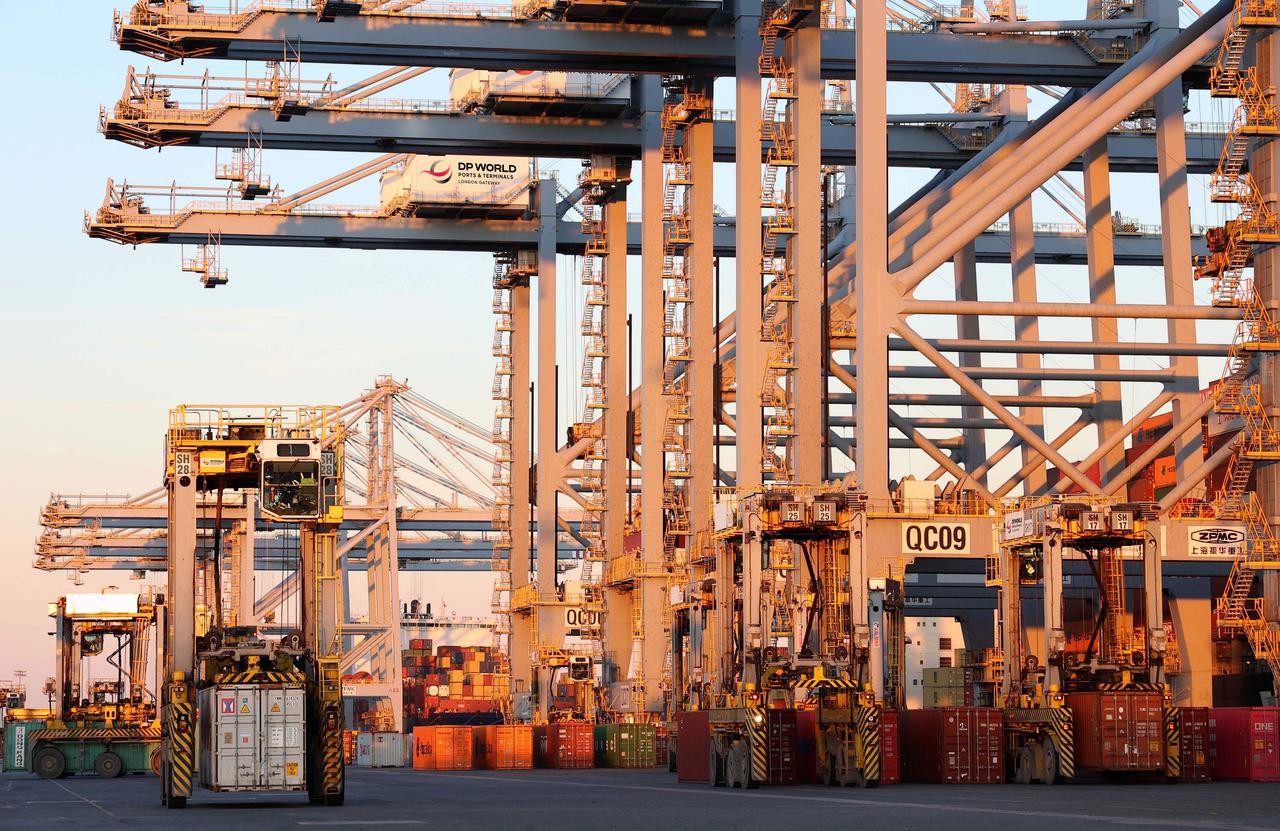Tankers pass on the Houston Ship Channel, Image by Lou Vest
 HOUSTON, Feb 23 (Reuters) – BP Plc exported nearly 670,000 barrels of minimally processed super-light crude oil from the Houston Ship Channel more than a week ago, according to ClipperData, an industry firm that tracks crude movements.
HOUSTON, Feb 23 (Reuters) – BP Plc exported nearly 670,000 barrels of minimally processed super-light crude oil from the Houston Ship Channel more than a week ago, according to ClipperData, an industry firm that tracks crude movements.
The 667,638-barrel cargo left Enterprise Products Partners’ ship channel docks – part of the company’s recent $4.41 billion acquisition of Oiltanking Partners LP – on Feb. 15 bound for Rotterdam in The Netherlands, ClipperData partner Abudi Zein said in an interview.
The shipment’s documentation said the cargo was processed condensate – a super-light form of crude – from the Eagle Ford shale in South Texas, he said.
BP declined comment on the shipment or whether the company is among several companies that received U.S. government approval to export condensate that has undergone enough processing to qualify as a refined product.
The loosening of the decades-old crude export ban opens export avenues for producers as domestic refiners and petrochemical companies have limited demand for such light oil.
BP has a 10-year contract with Kinder Morgan Inc to buy all output from two 50,000 barrels per day (bpd) condensate splitters on the Houston Ship Channel. The first is slated to start up next month, followed by the second this summer.
A splitter “splits” condensate into naphtha, a building block for gasoline, and distillates such as diesel and jet fuel.
The companies sealed the splitter deal in 2012. More than a year later the U.S. Department of Commerce issued the first of several approvals allowing companies to export condensate with less processing from a stabilizer, which removes natural gas liquids and contaminants but does not make motor fuels.
BP’s Feb. 15 shipment illustrates that the company can export stabilized condensate or more processed splitter output once Kinder’s splitter starts up.
The lightness of oil is largely determined by its API gravity specification – a measure of how light or heavy crude is compared to water – but the Commerce Department’s Bureau of Industry and Security has not defined what the API gravity must be to identify crude as condensate. Typical West Texas Intermediate light crude ranges from 37 to about 40, and companies say condensate ranges from 45 to 60 or higher.
BP’s documentation for the Feb. 15 shipment said the cargo’s API gravity was 62.6, Zein said.
(Reporting By Kristen Hays; Editing by Cynthia Osterman)
(c) 2015 Thomson Reuters, All Rights Reserved

 Join The Club
Join The Club











